In the celestial dance of the cosmos, there are few events as awe-inspiring as a solar eclipse. On April 8, 2024, the northeastern United States, including Northern New England (New Hampshire, Vermont, and Maine), will be treated to a spectacle as the moon passes between the earth and the sun. For sky gazers in this region, this rare event is an opportunity to witness the sun transform into a breathtaking celestial ring. As you prepare for this mesmerizing occurrence, here’s what you need to know about viewing the 2024 solar eclipse in Northern New England.

Timeline
- 2:14 p.m. — A partial solar eclipse will begin
- 3:26 p.m. — Total solar eclipse begins in Vermont
- 3:28 p.m. — Total solar eclipse begins in New Hampshire and Maine
- Totality, the brief period during which the sun is completely obscured by the moon, lasts approximately three minutes. A partial eclipse will last until around 4:30 p.m.
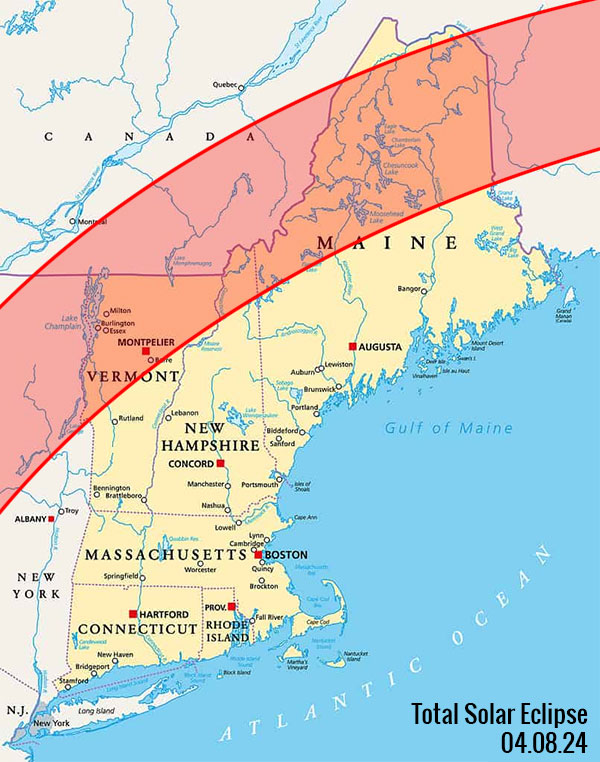
Choosing the right location
Selecting the right location is crucial for an unobstructed view of the eclipse. Consider elevated vantage points, such as hills or mountains, to enhance your perspective. Parks, open fields, and lakeshores can provide ideal settings for eclipse watching.
Vermont
- Vermont
- Burlington and Stowe will be great locations for viewing. In the Northeast Kingdom, consider Fairbanks Museum & Planetarium in St. Johnsbury, Crystal Lake State Park in Barton, Gardner Park in Newport, or Jay Peak Ski Resort in Jay.
New Hampshire
- New Hampshire
- Concord and various locations in Coos County, the northernmost part of the state.
Maine
- Maine
- Aroostook County, Moosehead Lake, Carrabassett Valley, and the towns of Houlton, Millinocket, Rangeley, Greenville, and Jackman.
Timing is Everything
The eclipse will unfold over several hours, with partial phases leading up to the moment of totality. Check local astronomical charts or websites for precise timing details based on your specific location. Arrive well in advance to secure a good spot and observe the subtle changes in the environment as the eclipse progresses.
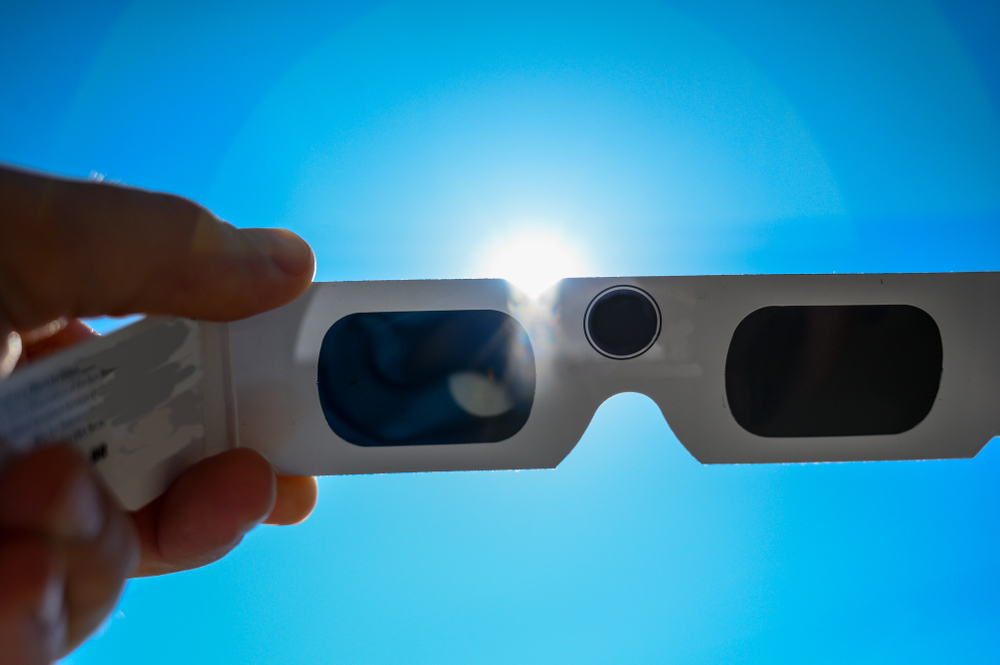
Safety First
Never look directly at the sun without proper eye protection. Ordinary sunglasses are insufficient for eclipse viewing. Invest in certified solar viewing glasses or use solar viewing projectors to safely observe the event. (If you wear glasses, wear solar viewing glasses over them.) Make sure everyone in your group, including and especially children, follows these safety guidelines.
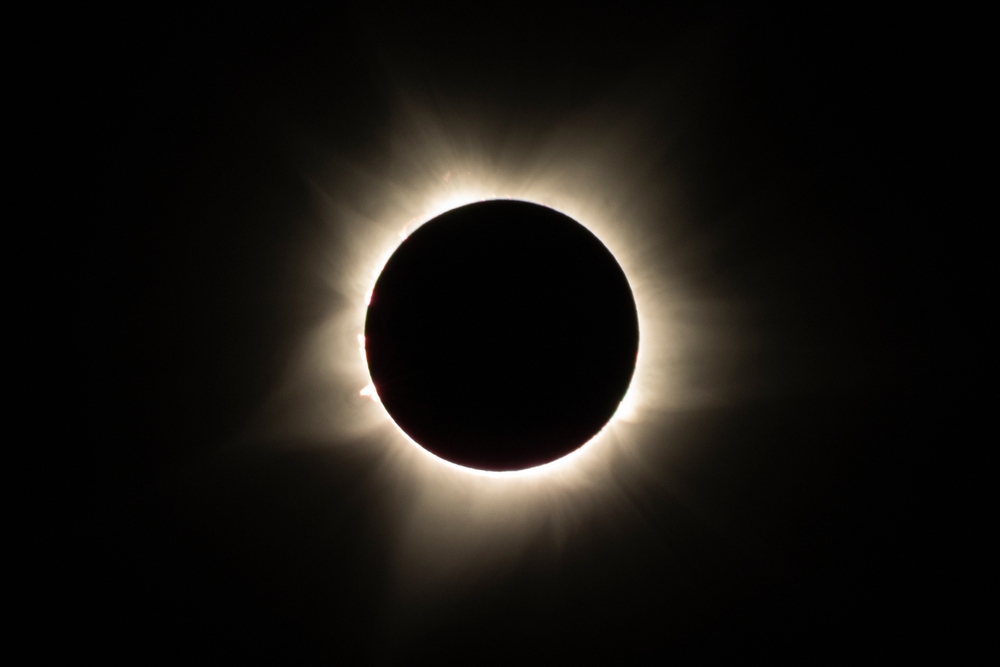
Weather Watch
Weather conditions can significantly impact your eclipse-viewing experience. Keep an eye on local weather forecasts and be prepared to travel to a clearer location if necessary. Cloud cover can be unpredictable, so having a backup plan in case of poor visibility is advisable.
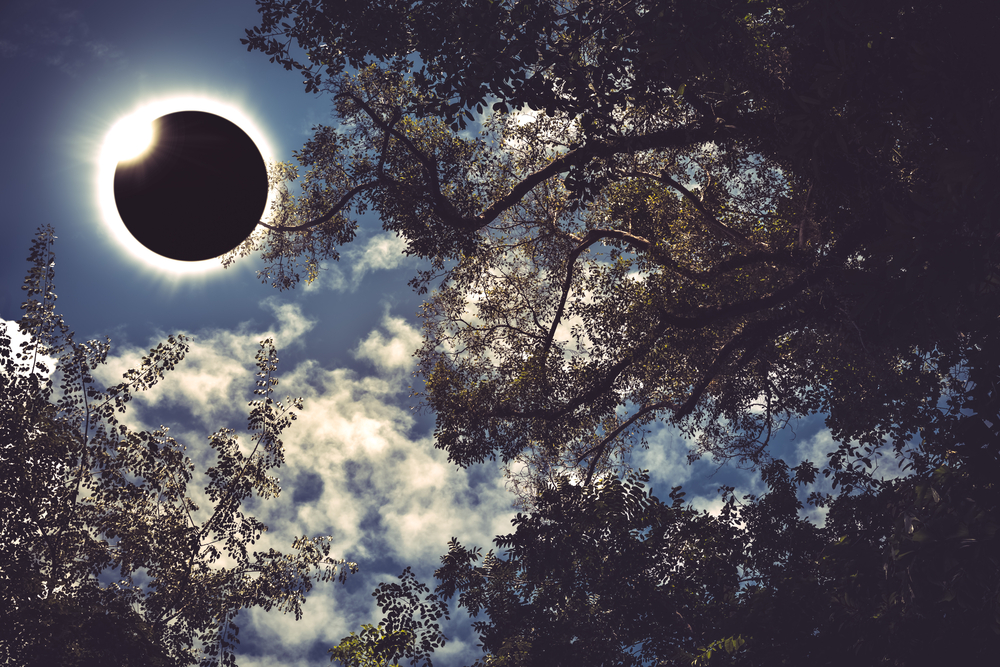
Community Events
Joining a community event or organized eclipse viewing party can add to the excitement. Local astronomy clubs, planetariums, or science centers may host gatherings with telescopes, expert speakers, and shared viewing experiences. Check for events in your area to make the eclipse a communal celebration, and visit our event listings here.
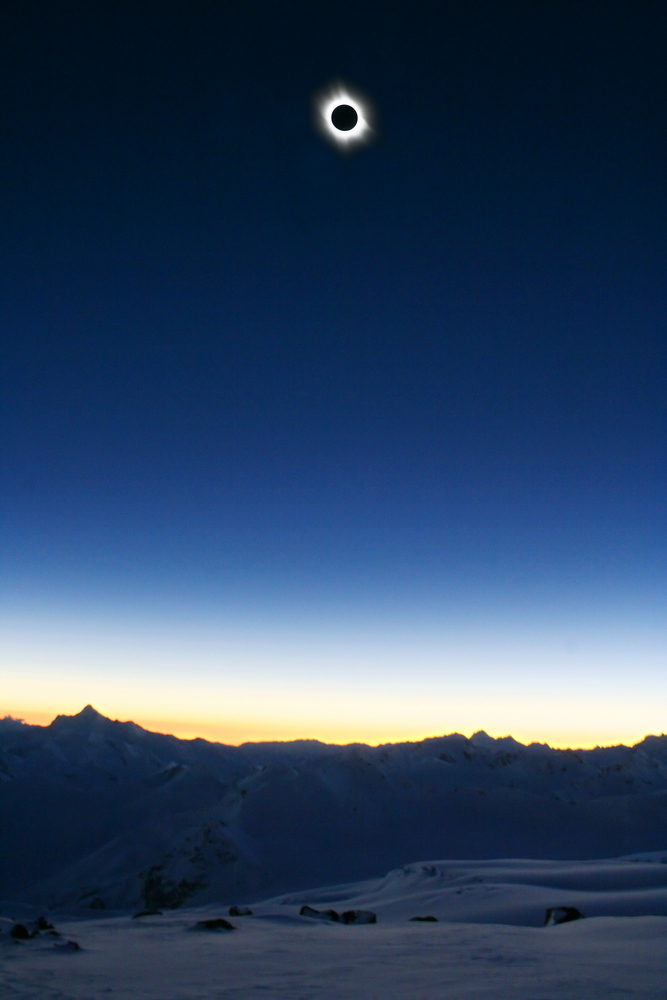
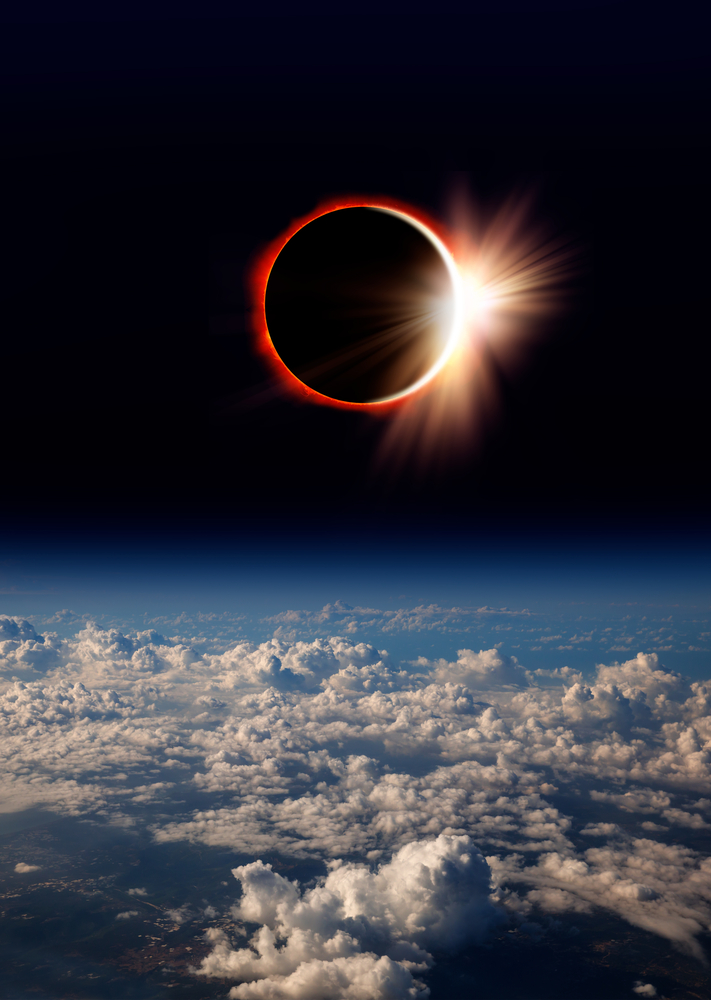
Plan for Traffic
Expect increased traffic in areas along the path of totality, especially as the date approaches. Plan your travel routes in advance, and consider arriving at your chosen viewing location a day early to avoid potential congestion on the day of the eclipse.

